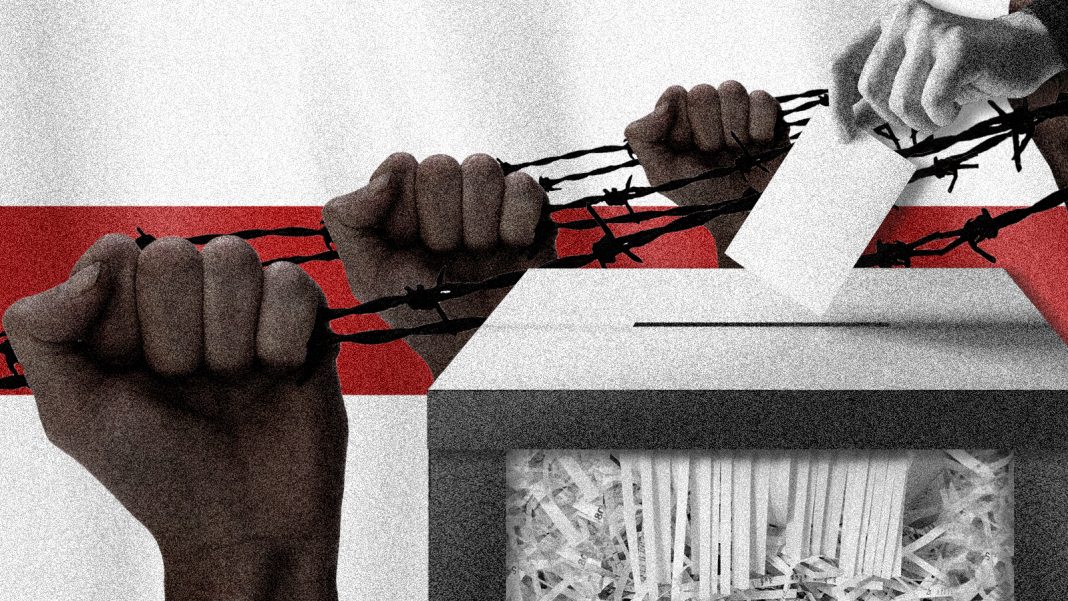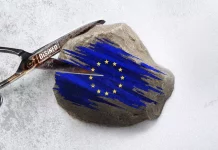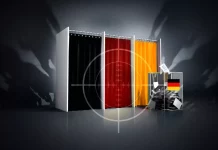It is now three years since Belarusian authorities manipulated, rigged and falsified the 9 August 2020 presidential elections in that country. This rampant electoral chicanery led to arguably the largest protests in Belarus in living memory and gathered people together from all backgrounds. Footage and pictures of Belarusians in the hundreds of thousands protesting spread on social media. A shaken Lukashenka received backing from Moscow to crack down with unspoken brutality and force on ordinary people of Belarus.
We have periodically published overviews of the situation regarding political prisoners, human rights defenders, civil society members, journalists, opposition figures, and ordinary people whom the regime has sought to silence. In 2021, we summarised the situation after one year and we gave this updated account. Since then, Lukashenka has publicly stated, almost bragging, that ‘I’m a dictator’.
The hunt for online activity has found new forms, often resulting in draconic prison sentences, defamation, or demands for public confessions targeting not only opposition, but anyone who dare to speak up against the regime and its crimes.
Summer 2023: Repression not slowing down
Unfortunately, most of the news is bad. We summarise the situation with a few key figures and facts.
The regime has repressed over 100,000 people by arrests and detention, pushing people out of jobs or forcing into exile, or conducting administrative or criminal cases. Authorities have added thousands to a list of alleged ‘extremists’ and jailed them for political reasons, including Nobel Peace Prize Laureate Ales Bialiatski. The state has labelled hundreds of media outlets and social media accounts as ‘extremist’ and jailed people for merely liking online content or putting a comment on a Telegram post. Meanwhile, regime propaganda compares Lukashenka to Jesus and calls on exiled Belarusians to return.
As of 8 August 2023, the Viasna Human Rights Center has identified 1,485 political prisoners in Belarus. The organisation is also aware of over 3,400 persons convicted in politically motivated criminal trials. These numbers confirm a steady upward trend in political prosecutions. For more about the Viasna Center, see our October 2022 article about its activities.
According to a recent report by the Law and Democracy Center, an international human rights organisation, the total number of victims of ongoing repression since May 2020 now exceeds some 136,000 people. Ten people have been killed and about 1,500 persons imprisoned for political reasons, with some kept in inhumane conditions. Authorities have arbitrarily detained over 35,000 Belarusians and forced more than 100,000 to flee the country.
Engage with ‘an extremist’ and go to prison
The Belarusian Ministry of Internal Affairs and the KGB have continuously and arbitrarily imprisoned people for their alleged involvement with those blacklisted as ‘extremists’. This ‘extremist’ list now contains over 3,000 names, with many media workers and bloggers among them.
In addition, the Ministry of Information has added thousands of media outlets and social media accounts to the list. On 4 July 2023 alone, a Belarusian court added 114 accounts to it. The Belarusian Association of Journalists is now considered as an ‘extremist formation’. See our more detailed repression timeline against Belarusian media and media workers here, here, and here.
Disappearances
One worrying development, according to Viasna and other human rights defenders, is the months-long or total absence of information about the whereabouts and conditions of well-known imprisoned opposition leaders and citizens, including Viktar Babaryka, Maryia Kalesnikava, Siarhiey Tsikhanouski, Mikalai Statkevich, Maksim Znak, Ihar Losik, Alena Lazarchyk, and Andrzej Poczobut. They and many others are held in strict isolation and incommunicado for months. A few Viasna members, including its chair and Nobel Peace Prize laureate Ales Bialiatski, are among them. Another question concerns the causes of death for the political prisoners Vitold Ashurak, Mikalai Klimovich, and Ales Pushkin.
Human rights defenders also report the continued repression of the freedom of expression, including punishment for liking online content. One recent example is the case of 29-year-old Dzmitry Papkou, who was sentenced to two years in prison for posting two ‘likes’ under posts critical of Lukashenka on the Russian language social media platform Odnoklassniki (OK) in 2021.
Read our earlier analysis about repression in Belarus here and here.
Public repentance and extremists
As part of their intimidation campaign, state media have continued to post ‘repentance’ videos. In April 2023, one arrested individual, referring to his past critical comments on his personal Facebook page, said in a so-called ‘interview’ to the main state TV channel Belarus 1 TV, ‘I greatly appreciate the opportunity to publicly bring my apologies to the head of the state on the main [TV] channel. I acknowledge that I behaved bad, dirty, and childish’. EUvsDisinfo will not link to or help to promote such material.
Repression is necessary, penal colonies are sanatoriums, and please come back
State propaganda have described this continued repression as a necessary and acceptable, minor societal process. A prominent July 2023 report on Belarus 1 TV praised conditions in penal colonies, presenting them as sanatoriums. The report also ‘interviewed’ political prisoners who, likely under pressure, described themselves as ordinary criminals.
In recent weeks, state propaganda has begun to advertise more often the so-called ‘safe return’ initiative that Lukashenka launched in February 2023. His decree established a special state commission consisting of state officials and propagandists tasked with reviewing individual cases of Belarusian living abroad who did not commit serious – that is, those resulting in multi-year prison terms – politically motivated criminal offences but fear returning to Belarus. The commission provides guarantees that a ‘safe return’ is possible after a public repentance. In recent months, the commission has reportedly received only a few dozen applications, indicating that Belarusians living abroad have greeted the initiative with deep distrust.
Call for more ideological work
The initiative appeared intended to demonstrate that political opponents are supposedly acknowledging their mistakes and finding life in Belarus better than life abroad. Perhaps authorities will invoke it as preparation for upcoming parliamentary and presidential elections in 2024-2025. At a 28 July meeting with Speaker of the Council of the Republic Natallia Kachanava, Lukashenka called for more active ideological work and implicitly referred to the 2020 protests, saying, ‘We need to ensure that our country and society will not destabilise as happened before’.
In a long ‘interview’ released on Belarus 1 TV, a young man assured that the ‘return initiative’ option works and he feels much better living in Belarus than in Poland. EUvsDisinfo cannot ascertain if the interview was conducted under duress, but as this is a new significant feature, we provide a link to the video. ‘I am interested in the return of Belarusian citizens to Belarus, in them watching this interview, and in making the conclusion that nowhere abroad will they live better [than in Belarus],’ the returnee says among many statements praising his life in Belarus.
Raman Pratasevich’s mother: welcome to Belarus!
A central figure promoting the ‘return initiative’ is the mother of Raman Pratasevich, a former Belarusian blogger who was arrested in May 2021 after the Belarusian state forced his Ryanair plane to land in Minsk. Later, on 3 May 2023, he was sentenced to eight years in prison for managing a popular Telegram channel that the Belarusian state considered ‘terrorist’. He became the target of a massive Belarusian state-run smear campaign (see our database) but was pardoned from prison by Lukashenka some three weeks later, on 22 May of this year.
Then, in July, the state-run TV ONT channel released video reports featuring Raman and his mother Natallia. She had left Belarus in the autumn of 2020 fearing political persecution and recently returned upon addressing the ‘return commission’. Sitting on a bench in Minsk next to her son, Natallia gave a similar interview, saying she missed her kids, her mother, Minsk, and the country, and that Belarus is a free country. Raman praises life in Belarus. Towards the end of the broadcast, he reassures the state TV interviewer that he will not get involved in politics.
The ONT broadcast comes across as odd. Lukashenka’s regime often forces the confessions of political opponents. In one such instance, Raman Pratasevich appeared on ONT on 31 May 2021 shortly after he was arrested from the Ryanair flight. In the new broadcast, Raman appears uneasy and his mother’s words have the ring of rehearsed statements.
State propaganda: Lukashenka, a.k.a. Jesus Christ, fighting class enemies
Belarusian state media regularly devotes much of its coverage to denigrate political opponents. On the eve of the third anniversary of the 9 August 2020 presidential election, efforts to discredit the protests and democratic leaders have intensified.
In early August, many disinformation-spreading Telegram channels, including the channel of the State TV Broadcasting Company, disseminated a message alleging that Belarusian pro-democracy leader Sviatlana Tsikhanouskaya openly said in an interview that she had smoked marijuana and advocates for legalising light drugs. In fact, the fake Tsikhanouskaya quote belongs to the satire website Panorama. This is not the first incident involving Panorama. Previously we reported a number of cases in which disinformation outlets presented made-up Panorama ‘news’ as real.
State propaganda goes to great lengths to boost Lukashenka’s image domestically. ‘Lukashenka is not just a politician and a globally known leader. He embodies a set of political, economic, and moral narratives. Lukashenka is in opposition to the debauched West. This is the core of the confrontation with the Belarusian idea. Hence the upcoming electoral campaign will not be just a political fight,’ a political commentator on the STV TV channel recently said. Belarusian viewers are urged to stop looking at the West to prevent a ‘Ukrainian scenario’ and a ‘Sodoma-like rain’. The report also referred to the 2020 protests, saying, ‘We were creating a middle class, but we got a rioting bourgeois instead. Capitalist guts will never be satisfied’.
In a column for the state-owned newspaper Minsk Pravda, another key state propagandist called upon readers to ‘recall what class hatred is’ and attacked representatives of the service sector, particularly IT workers. ‘They should be ashamed to be IT workers … They should be penniless … They should be attacked by louses and fleas and located in certain places where chemical protection troops arrive at times to hose them down with antidote,’ the column says. The article compares them unfavourably to manual workers. It refers to the recent, heavily staged meeting of Lukashenka with a group of collective farm workers where they all ate soup in a field. ‘This is like da Vinci where Christ shares simple bread with the apostles,’ the article says.
Sabre-rattling abroad, repression at home
In its foreign policy, Belarus has allowed itself to be dragged into Russia’s war on Ukraine by providing territory, airspace, logistics, and other support to the Kremlin. Lukashenka frequently issues vitriolic statements against Ukraine and President Zelenskyy and is willing to welcome the stationing of Russian tactical nuclear weapons in Belarus while spreading disinformation suggesting that Poland and the Baltic republics are planning to invade the country.
But it is worth remembering that domestically, three years after the fraudulent 2020 elections, the concept of the class enemy, which was used in the Soviet Union as a justification to imprison millions of citizens, is getting more traction in state media while Lukashenka is elevated to new highs. What was merely bad is getting worse.





